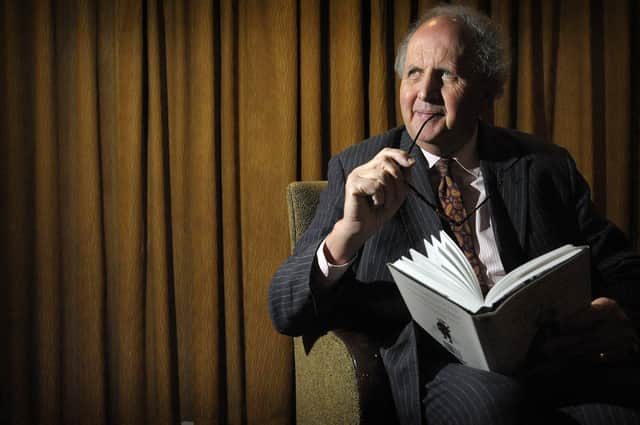Book review: The Exquisite Art of Getting Even, by Alexander McCall Smith


It is only a few weeks since Alexander McCall Smith’s last novel was reviewed, and now here’s a collection of stories. More than 30 million copies of his books have been sold. He is the most prolific of authors, and yet, remarkably, he writes always in the most leisurely of manners. His style is conversational and friendly. He is both amusing and serious. He feels affection for his characters, but he is also a moralist. Of course moralism is back in fashion – to that extent he is very much of our time. However, he is never self-righteous. He will even remark that “the perpetrators of acts of cruelty or injustice may not have grasped the objective wrongness of their acts.” This is an unfashionable view. Unfortunately, “we live in days when we are particularly keen to find somebody to blame for any misfortune”.
This new book deals with the subject of revenge or, at least, retribution. There are four short stories, each with an introductory essay. The settings are various: Mull, Melbourne, Balerno and the London literary world. All may be called exemplary, inasmuch as each raises a question of what the right behaviour would be in the circumstances described. The punishment inflicted on presumed wrongdoers is mostly light, not always credible or – I guess – intended to be that. Compared with revenge and/or retribution stories by, for instance, Kipling or Maugham they are gentle. McCall Smith never permits the reader to feel a savage satisfaction. In the story set in the literary world, the revenge punishment, though well merited, is averted by an act of generosity performed by a victim of a bestselling novelist’s cruelty. This is a very neat and pleasing story.
Advertisement
Hide AdMcCall Smith rarely attempts to catch the rhythms of individual speech. This scarcely matters. Though he gives his stories a veneer of realism and the characters are almost all well imagined, they are, except perhaps in the story set in Australia, types rather than individuals. The bestselling author, for instance, exists to make a point, furnish an example of selfishness, dishonesty, indifference to others; he is a cartoon figure. Nevertheless the story is engaging and amusing. It had me recalling indeed an experience of my late lamented literary agent, Giles Gordon, who, entrusted as a very young publisher with a certain bestseller’s manuscript, conscientiously corrected grammar and improved the prose, provoking the author to angry complaint, and being himself rebuked, told that Mr X’s manuscripts are never edited, but sent straight to the printer. That author incidentally once boasted, as McCall Smith’s might, that his novels had been translated into every language except one. “That would be English, I suppose,” someone said.
The Balerno story tells of a revenge that goes disturbingly agley, nice people acting out of character. It comes closest of the four to being true to life, ending with admissions of shame and apologies. The Mull one strains credulity beyond the snapping point, though there is humour in its depiction of Free Presbyterians certain of their virtue. The best story is the Australian one about nice, but not particularly talented actors who find success in a Neighbours-like soap and satisfyingly see off a pushy woman they have resented since acting school days. The twist is funny, appropriate and, alas, surely too good to have any chance of ever having been true.
The stories all have McCall Smith’s characteristic charm, and make for easy and very pleasant reading. The short essays that introduce each story all invite thought. How should we behave when dealt a bad hand or experiencing injustice? Is it right to meet like with like? Sometimes it must be. Nevertheless, as in all McCall Smith’s work, we are reminded that the necessary quality in social life is kindness. Reading McCall Smith is always comforting, but there is an edge to his work too, for he does, in a quiet, well-mannered way, suggest that we look at ourselves, and that we should be as ready to judge ourselves as to condemn others; perhaps even readier.
The Exquisite Art of Getting Even, by Alexander McCall Smith, Polygon, 200pp, £12. Alexander McCall Smith is appearing at the Edinburgh International Book Festival on 16 August, www.edbookfest.co.uk